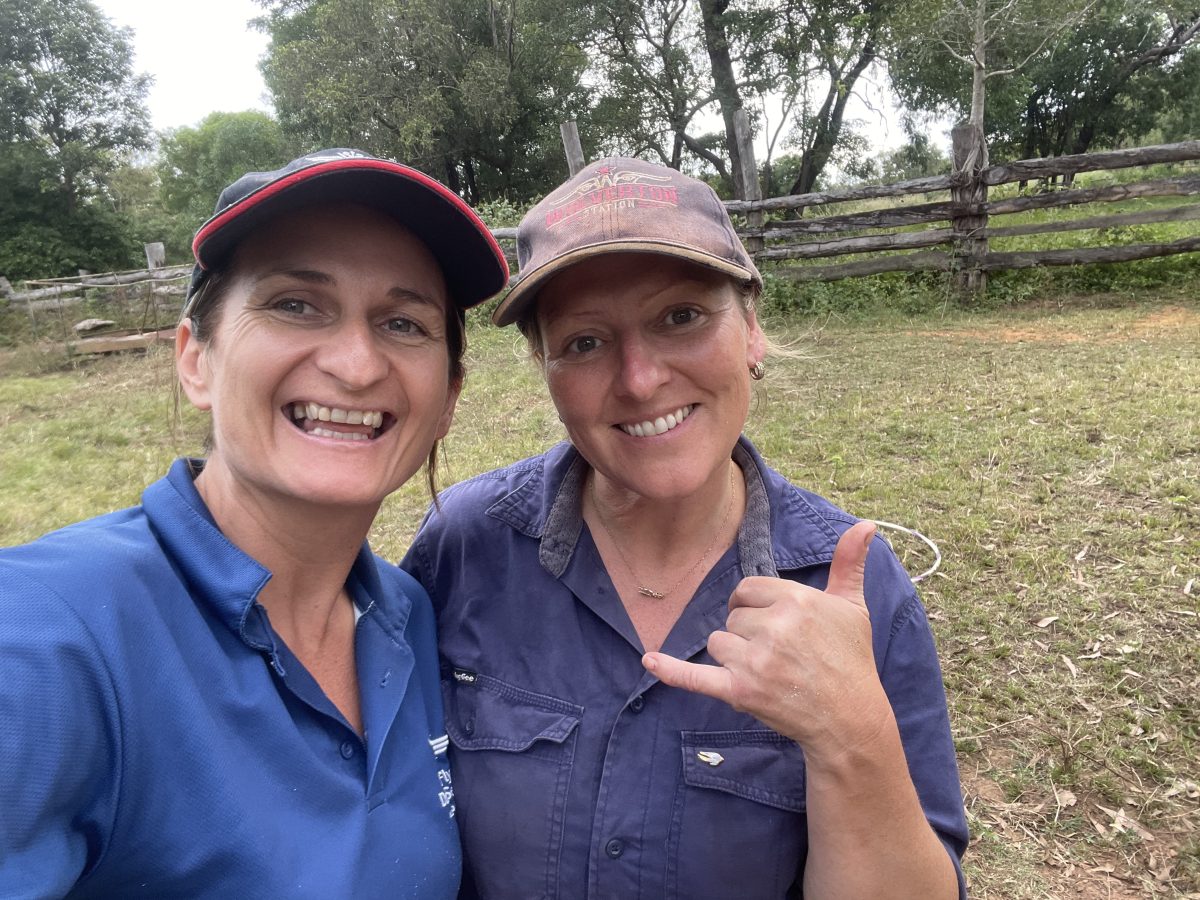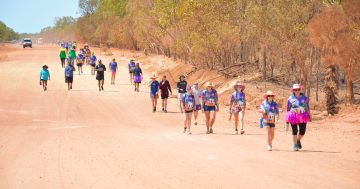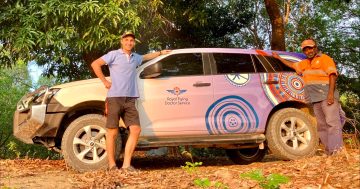
Jos Middleton and Emma Jackson are leading the way in equine-assisted intervention on Cape York. Photo: Supplied.
As a new Australian study shines a spotlight on the healing power of horses, on Cape York, two organisations are leading the way in helping community members overcome difficulties and improve their lives with a bit of equine intervention.
The Royal Flying Doctor Service (RFDS) Queensland’s Jos Middleton and Swift FNQ’s Emma Jackson have collaborated over the past three years to deliver the free Horse Wisdom program, an overnight camp on Wolverton Station during which participants learn key mental health skills while working with horses.
Ms Middleton, who is RFDS’ Far North mental health manager, said the program focused on seven key elements – the calm state, awareness, boundaries, thinking, relationships, feelings and facing life challenges.
“We bring together Emma’s skills as an equine-assisted learning facilitator, as well as her background as a teacher and a degree in psychology, with my clinical mental health skills,” she said.
“We found that we get people from all over the Cape coming, but we also get people from the Tablelands as well, which is pretty exciting.
“So far, everyone’s taking away a lot of positives, and I have actually just done a bit of an evaluation for our board, which highlighted significant improvement across the areas we measure in the evaluation.”
She said outcomes from last year’s participant feedback indicated reduced stress levels than on arrival (reduced by 67.12 per cent), improved understanding of feelings (improved by 42.37 per cent), improved connection with their bodies (improved by 32.09 per cent) and improved ability to cope with and manage challenging situations (improved by 58.18 per cent).
Ms Middleton explained a horse’s ability to mirror human emotion made them a great partner for self-reflection and finding a sense of calm.
“If you approach the horse in an angry manner, for example, the horse will react to that, and the horse won’t come to connect with you,” she explained.
“We have to find our sense of self and our grounded self to get that interaction with the horse, and it is all on relationships.
“Horses are really good at demonstrating their boundaries … they can communicate to us just by moving their head or by walking away, so we’re able to leverage off that, and show people, you know, how do you communicate your boundaries.”
Though the University of South Australia study focused on equine-assisted therapy for children, many of the benefits were similar to what was being achieved with youth and adults on Wolverton Station.
Social work graduate Morgyn Stacy, who led the study as part of her honours project, said many children did not respond to sitting in a room with a therapist or clinician, which could be intimidating.
“But give them the space to be outside, to connect with a horse, and something powerful happens; they begin to feel safe, calm, and ready to open up,” she said.
“The benefits go beyond mental health; children often gain confidence, improve communication skills, and build stronger emotional resilience.”




